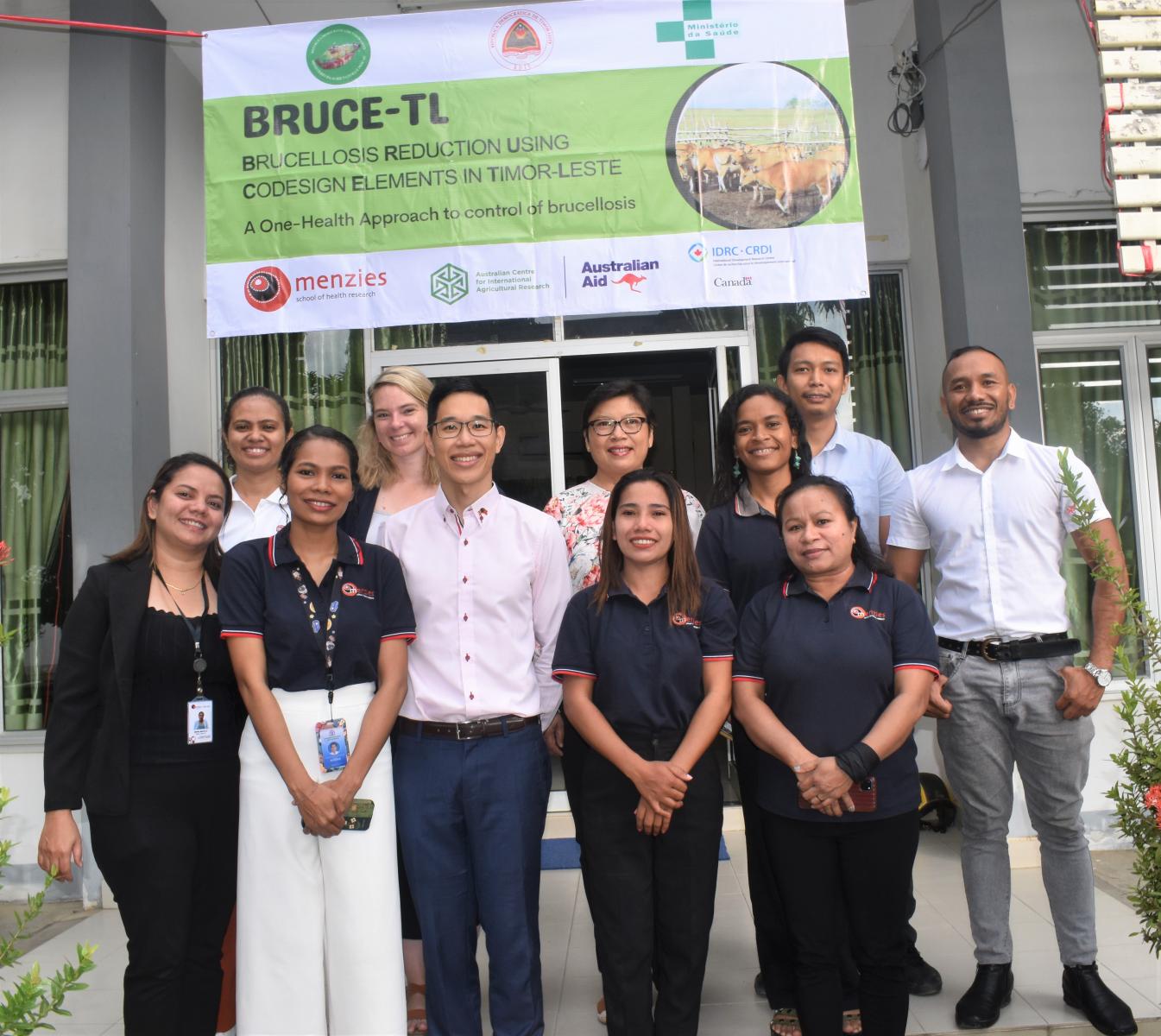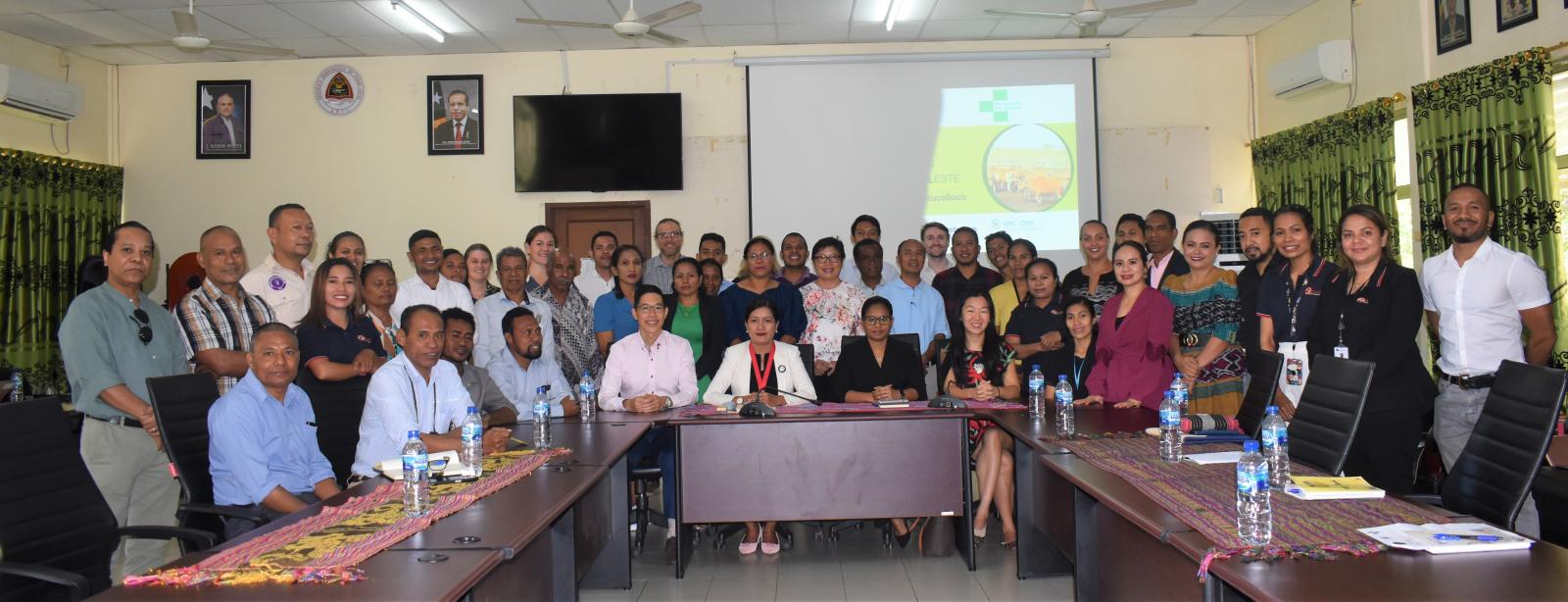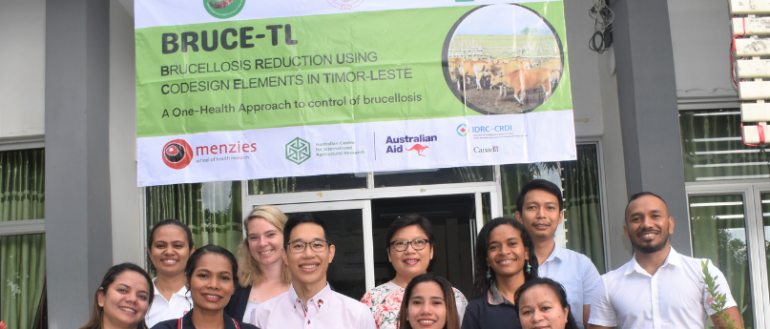A new project to tackle brucellosis – a disease that can spread between animals and people – had its official launch event in Timor-Leste in June.
Known as the Brucellosis Reduction Using Codesign Elements in Timor-Leste (BRUCE TL) Project, this work is a collaboration between Menzies School of Health Research (Menzies), the Timor-Leste Ministry of Agriculture and Fisheries, the National Institute of Public Health Timor-Leste - Ministry of Health, the Public Health Laboratory, and the Veterinary Diagnostic Laboratory.
The project will commence in the Bobonaro Municipality of Timor-Leste and will work to strengthen the government and local community’s ability to respond to bovine (cattle) brucellosis which has an impact on human health, animal health, livelihoods and food security.
It will utilise a One Health approach, which recognises the connection and balance needed between the health of humans, animals and the environment to achieve a solution.
Cattle are of high economic, social and cultural value to smallholder farmers in Timor-Leste. However, brucellosis heavily impacts on this. Infected livestock experience reduced weight gain, abortion and infertility. Being a zoonotic disease (meaning it spreads from animals to humans), it can also affect those working closely with cattle and can be passed via the food chain, if infected products are consumed. Tackling the impacts of brucellosis will help to reduce occupational health hazards of working with livestock, as well as increase productivity and the safety of food in Timor-Leste.
This research is made possible through financial support from the Australian Centre for International Agricultural Research (ACIAR) and Canada’s International Development Research Centre (IDRC).

Image 1: Menzies BRUCE-TL and Animal Health team at the official launch of the project in June.

Image 2: The attendees at the official BRUCE-TL launch in Timor-Leste last month. This project will run until 2025.

